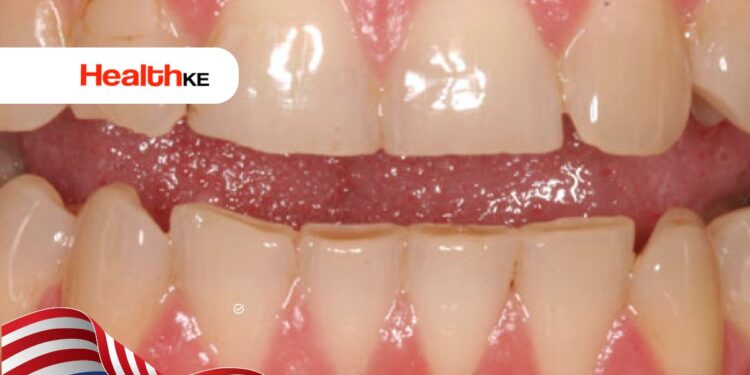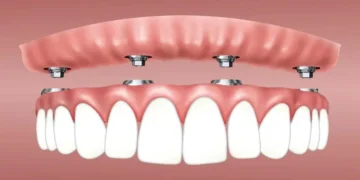Dental health is a crucial part of our overall well-being. One issue that many people face but often overlook is worn out teeth. Worn out teeth not only affect your smile aesthetically but can also lead to serious dental complications if untreated. This comprehensive guide explores the causes, symptoms, types, prevention strategies, and treatments for worn out teeth, ensuring you have all the information needed to protect and restore your dental health.
Table of Contents
Understanding Worn Out Teeth
What Are Worn Out Teeth?
Worn out teeth refer to teeth that have lost their natural structure and strength due to continuous mechanical or chemical wear. This can include thinning enamel, chips, cracks, or even changes in bite. Over time, worn teeth may lead to sensitivity, pain, and increased risk of cavities.
Common Causes of Worn Out Teeth
Worn out teeth develop from a combination of lifestyle habits, age-related changes, and medical conditions. Some primary causes include:
- Bruxism: Chronic grinding or clenching of teeth, often during sleep
- Poor Dental Hygiene: Plaque buildup leading to enamel erosion
- Dietary Habits: Frequent consumption of acidic foods and beverages
- Age: Natural wear over decades of chewing and biting
- Genetics: Some individuals are more prone to enamel weakness
Symptoms and Early Signs
Recognizing worn out teeth early can prevent severe damage. Look for:
- Tooth sensitivity to hot, cold, or sweet foods
- Discoloration or yellowing of teeth
- Chipped or cracked teeth
- Flattened biting surfaces
- Jaw discomfort or pain while chewing
Types of Tooth Wear
Understanding the type of wear can guide treatment decisions.
Attrition
Attrition is the natural wear caused by tooth-to-tooth contact. It usually appears as smooth, flattened surfaces on the molars or front teeth and is often linked with bruxism.
Abrasion
Abrasion results from external mechanical forces, such as aggressive brushing or using hard-bristled toothbrushes. It often affects the areas near the gum line.
Erosion
Erosion is chemical wear caused by acids, either from diet (like citrus or soda) or medical conditions like acid reflux. It weakens enamel and makes teeth more prone to damage.
Abfraction
Abfraction is a type of wear caused by stress-induced microfractures. It often presents as small notches near the gum line and can progress over time.
Risk Factors You Should Know
Some factors increase the likelihood of developing worn out teeth:
Diet and Acidic Foods
Consuming acidic foods and beverages frequently can erode enamel, leading to long-term wear. Limit citrus fruits, soft drinks, and carbonated beverages.
Bruxism and Jaw Issues
Grinding teeth during sleep or stress can accelerate attrition. Night guards or stress management strategies can significantly help.
Poor Oral Hygiene
Neglecting oral care increases plaque buildup, enamel weakening, and cavities, all contributing to worn teeth.
Preventing Further Damage
Preventing damage is always better than treating it later.
Correct Brushing & Flossing Techniques
Use soft-bristled brushes, fluoride toothpaste, and gentle circular motions. Floss daily to remove plaque from hard-to-reach areas.
Protective Gear & Night Guards
Athletes should wear mouthguards during sports. Night guards protect teeth from bruxism-related wear.
Diet Modification
Reduce sugar and acidic intake, drink plenty of water, and include enamel-strengthening foods like dairy and leafy greens.
Treatment Options for Worn Out Teeth
Several treatments can restore both function and appearance.
Dental Bonding
A quick and cost-effective solution for minor chips and surface wear. Tooth-colored resin is applied and shaped to restore the tooth.
Veneers
Veneers are thin layers of porcelain or composite applied to the front surface of teeth to improve aesthetics and protect worn enamel.
Crowns
For severe wear, crowns provide full coverage and structural support, restoring function and appearance.
Orthodontic Treatment
Correcting bite issues prevents uneven wear and can reduce stress on teeth.
Root Canal Therapy
If wear reaches the pulp, root canal treatment may be necessary to save the tooth.
Dental Implants
For irreparably damaged teeth, dental implants replace the tooth entirely, providing long-term durability.
Home Remedies & Natural Care
Supplementary care at home can slow wear and maintain oral health.
Oil Pulling
Swishing coconut or sesame oil may help reduce harmful bacteria and plaque, indirectly supporting enamel health.
Fluoride Rinses
Fluoride strengthens enamel and prevents decay. Use mouth rinses recommended by dentists.
Healthy Diet Choices
Calcium-rich foods like milk, cheese, yogurt, and fibrous vegetables can support enamel strength and gum health.
Professional Dental Care Frequency
Regular dental visits are critical for detecting early signs of wear and preventing complications. Schedule check-ups at least every six months or as advised by your dentist.
Lifestyle Changes to Support Dental Health
- Quit smoking: Tobacco accelerates enamel degradation.
- Limit alcohol consumption: Alcoholic drinks can be acidic and sugary.
- Stay hydrated: Water helps neutralize acids and maintain saliva flow.
- Manage stress: Reduces bruxism and related tooth wear.
FAQs About Worn Out Teeth
Q1: Can worn out teeth grow back naturally?
A1: No, enamel does not regenerate naturally. Treatments like bonding, veneers, or crowns are required to restore worn teeth.
Q2: How long does it take for teeth to wear out?
A2: The timeline varies based on diet, habits, and genetics. Chronic bruxism can cause significant wear in a few years, while normal wear occurs over decades.
Q3: Are worn out teeth painful?
A3: They can be. Sensitivity and discomfort while chewing are common, especially if the dentin is exposed.
Q4: Can diet alone prevent worn out teeth?
A4: Diet helps reduce risk but cannot prevent all wear. Proper dental care and protective measures are also essential.
Q5: Are children at risk of worn out teeth?
A5: Rarely, but habits like thumb-sucking, nail-biting, or frequent acidic beverage consumption can cause early wear.
Q6: What’s the best treatment for severe worn out teeth?
A6: Crowns or dental implants are often the most effective solutions for severe wear, restoring function and aesthetics.
Conclusion
Worn out teeth are a common but manageable dental issue. By understanding the causes, recognizing early signs, and adopting preventive measures, you can maintain strong, healthy teeth. Regular dental care, lifestyle modifications, and timely treatments like bonding, veneers, or crowns can restore both function and confidence in your smile. Don’t wait until pain or severe damage occurs—take proactive steps today to protect your teeth for years to come.


 Home
Home









